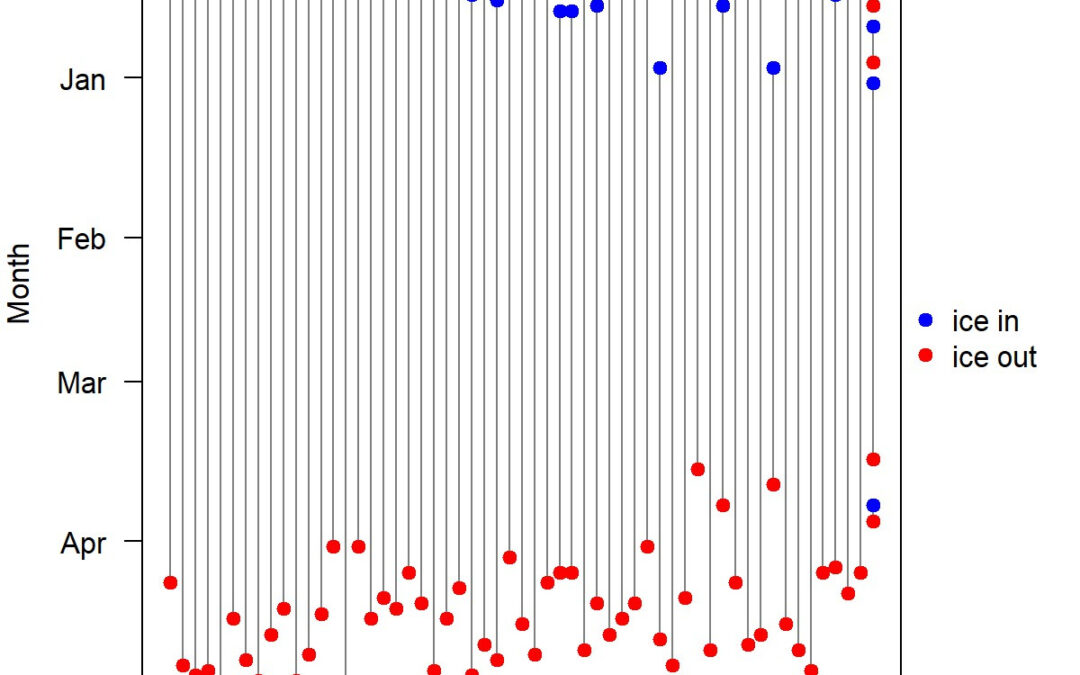From Hubbard Brook Research Foundation: During the 2023-24 winter season, Mirror Lake underwent four separate freeze-thaw cycles, as determined by an event never before seen during the lake’s 60-year ice record. Hubbard Brook technician, Tammy Wooster, from the Cary Institute of Ecosystem Studies, has been documenting the dates of ice-in and ice-out at Mirror Lake for more than two decades. Wooster’s data indicates that the only other instance of a single mid-winter thaw occurred in 2018, prompting this paper and this interview with Hubbard Brook Ecosystem Study Co-Founder Dr. Gene Likens, who started the ice record in 1964.
Mirror Lake, which collects water from the Hubbard Brook in Thornton, NH, has been the subject of scientific study for decades. Dr. Likens developed a protocol of declaring “ice-in” when a complete layer of ice covers the surface and remains frozen for two days, and declaring “ice-out” when the surface thaws and remains fully open for two days. While the criteria used to determine dates of ice-in and ice-out differ among research sites, the Mirror Lake record has remained consistent in its methods over the past 60 years, making unusual winter freeze-thaw events important indicators of climatic shifts.
The first ice-in of the 2023-24 winter season was recorded on December 5, 2023, only three days earlier than the average ice-in date of December 8.
The first ice-out occurred two weeks later on December 18 following a 4″ precipitation event which caused major flooding across New Hampshire and Vermont. The lake refroze on December 22 and iced out for a second time on December 29.
The third ice-in event occurred on January 2, 2024, after the region received 18 inches of snow. The third ice-out occurred on March 15. The final ice-in occurred on March 24 after another heavy snowfall, and the final ice-out occurred on March 27.
Ice cover is a huge component of a lake’s annual thermal budget. When the surface of a lake is uncovered, wind mixes oxygen-rich surface water deeper into the water column. Sunlight fuels photosynthesizing organisms at deeper levels, keeping the food web healthy. Irregularity in freeze-thaw cycles can stop-start processes that have evolved to occur more slowly.


 Return to the Concord Monitor
Return to the Concord Monitor